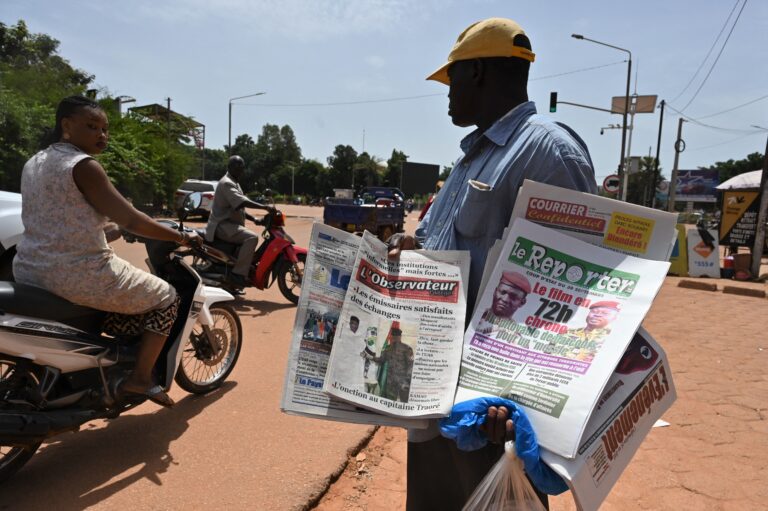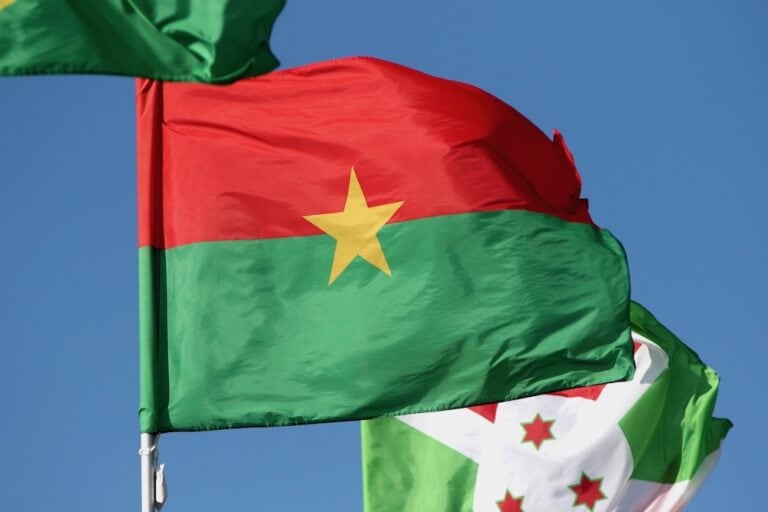(ARTICLE 19/IFEX) – The following is a 12 December 2005 ARTICLE 19 letter to Burkina Faso Prime Minister Blaise Compaore: Blaise Compaore, President of Burkina Faso 12 December 2005 Dear Mr. President, ARTICLE 19 would first like to congratulate you on your reelection to the Burkina Faso presidency on 13 November 2005. Reaffirmed by the […]
(ARTICLE 19/IFEX) – The following is a 12 December 2005 ARTICLE 19 letter to Burkina Faso Prime Minister Blaise Compaore:
Blaise Compaore,
President of Burkina Faso
12 December 2005
Dear Mr. President,
ARTICLE 19 would first like to congratulate you on your reelection to the Burkina Faso presidency on 13 November 2005. Reaffirmed by the legitimacy that comes with your new electoral term, we hope that you will advance efforts to protect and guarantee freedom of expression. In 1984, Burkina Faso ratified the African Charter on Human and Peoples’ Rights and in Article 8 of the country’s constitution “freedom of opinion, of the press and the right to information” are recognised. However, despite this and the 1993 information law, Burkina Faso’s legal structures haven not proven sufficient in defending these rights. As such, we call on you to take a firm stance to promote and guarantee in solid terms not only freedom of information but also equal access to information.
ARTICLE 19 is concerned that there is no legal provision in place to specifically guarantee equal access to information. Recognised by international conventions to be necessary to democracy, this right stipulates that everyone has access to diverse sources of information, notably those from government sources. We invite you to put in place a national policy to guarantee this right in a similar format to that adopted by South Africa on its Promotion of Access to Information law or by Article 41 of Uganda’s constitution and its recently passed Access to Information Act (2005).
The 13 November presidential election illustrated the regional disparities with respect to access to information. Effectively, the public media outlets have not incorporated local languages into their coverage. It is therefore necessary to question public understanding of the electoral messages that were disseminated to the population. Given their distance from the capital and the poor state of the road networks, certain sub regions were not privy to elections coverage. This also highlights the inequality of populations and territories concerning freedom of expression and information.
ARTICLE 19 deplores the state’s unwillingness to address these issues and insists on the necessity of an access to information legal framework. In effect, this guarantee is indispensable to the functioning of your government and to building a democracy.
Our organisation is at your disposal to support these implementation efforts.
Sincerely,
Agnès Callamard
Executive Director


